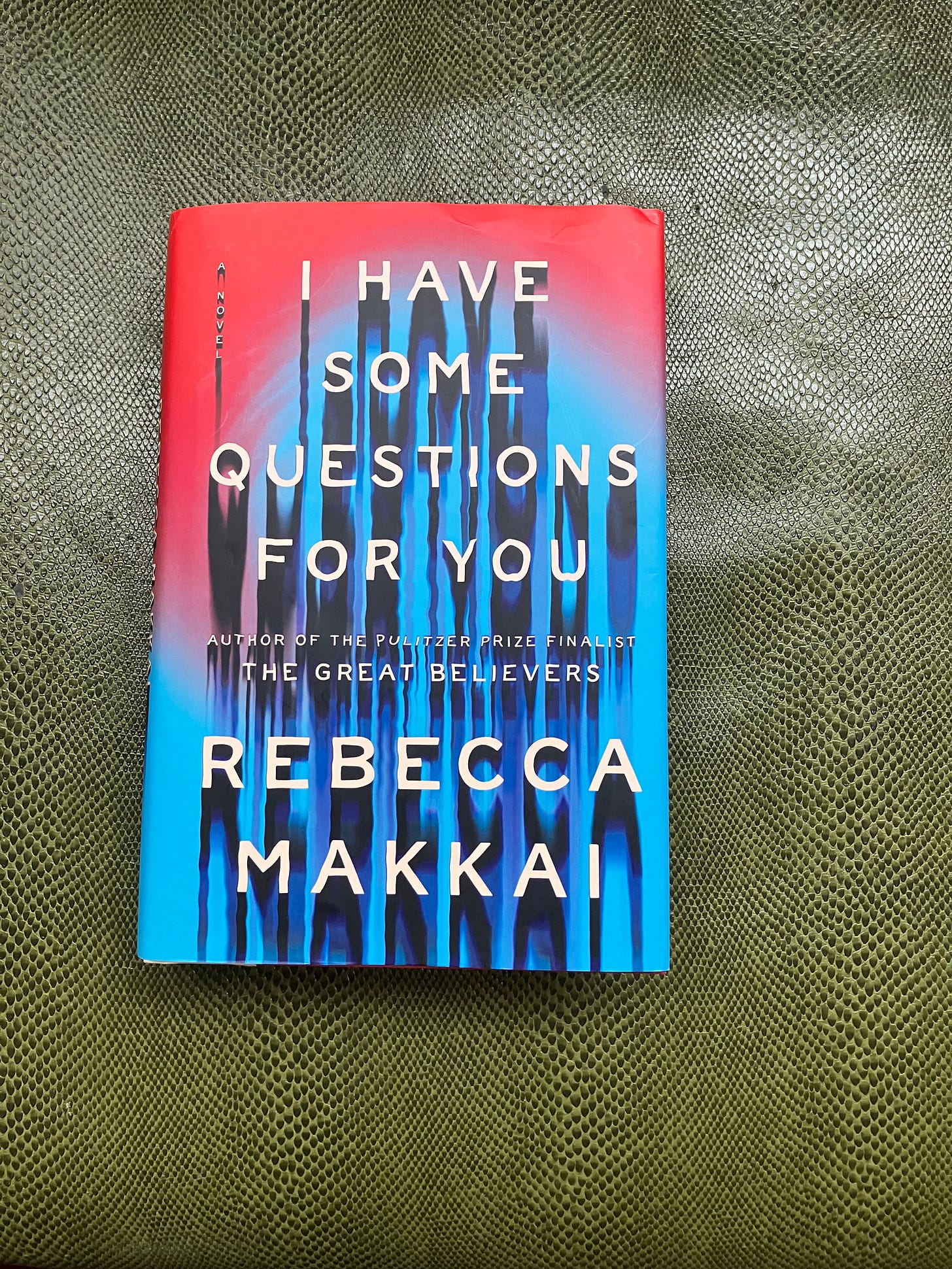I'm 20. This is my take on the TikTok Hearing.
guest post from my awesome intern plus other updates on TikTok, generation gaps and more
This week, I’ve been following the TikTok hearing and trying to understand what a ban would mean for kids and families in the United States.
I had a great conversation with my media intern, Emma Feuer about it. Emma is a second-year journalism student at Northwestern. After our conversation, where I revealed that even though I’ve been posting to TikTok, there’s a lot I don’t understand as I’m not a heavy user, she pointed out that this is exactly how we break down the generation divide! I invited her to write a post summarizing her thoughts.
“Teaching each other can start by being more open about our technology and social media experiences during casual conversations.”
One of the big takeaways:
"I was surprised that in a hearing that could potentially ban one of the largest social media platforms from the country, so much time was spent discussing what feels like technology-common sense.
From what I have seen on my TikTok and Instagram feeds, many people my age know how apps need to connect to WiFi or how camera filters temporarily track facial expressions. There appears to be a communal shock that these “technology basics” needed to be clarified.”
Here’s the rest of her post.
Wait but what about other social media companies, don’t they amplify problematic content, too?
I also really appreciated Ali Breland’s insightful article in Mother Jones.
In his article, Breland points out that many of the issues TikTok is being criticized for are also present in other social media. Amplifying harmful content like dangerous viral trends like the “blackout challenge” or offering a venue for the sales of illegal drugs or sharing videos that encourage self-harm is a problem—but these factors are not unique to TikTok. So Breland asks the bigger question—if these are the true reasons for banning TikTok—then Congress is making a decent argument for banning ALL social media apps.
Maybe the apps should come with time limits
OK, so TikTok has thought of that! In fact, in China, they significantly limit kids time on the app. This article in the New York Times addresses how the measures put in place by TikTok to limit the time teenagers in the U.S. spend on the app isn’t very effective according to the experts—-teenagers.
“This month, the company announced a new 60-minute “daily screen time limit” for users under 18. But for most young users, staying on the app takes just a few taps.”
Some of the teens interviewed for the article by Sapna Maheshwari used metaphors about recovery and sobriety to talk about their relationship with TikTok.
Generation Gaps in Fiction: I Have Some Questions For You
Finally, when I’m not obsessing about the TikTok hearing, what am I reading for fun these days? Even when I’m reading for fun, I can’t help noticing the generation gap. In this case, Rebecca Makkai’s latest novel, I Have Some Questions For You is a bit of a love letter to Generation Z, among many other things! I’ve been a Rebecca Makkai fan since The Borrower. She’s a Chicago writer, so I feel like I know her, even though our paths haven’t crossed. I wasn’t surprised to read that Makkai teaches at the undergraduate level and has at least one teenager at home. I bought the novel on the road home from my latest speaking trip to Buffalo and Long Island and have since devoured it.
The novel’s narrator, Bodie Kane, is now a successful podcaster but was once an awkward teenager on a scholarship at a boarding school with rich, seemingly confident kids. A popular, beautiful girl was murdered, and the person convicted went to jail. Everyone moved on, except…there are questions.
Present Bodie, now a prominent podcaster and the mother of young children herself is co-parenting with her separated husband. She returns to the boarding school she attended as a visiting teacher for two short courses. I felt seen as she was asked constantly throughout the novel “who’s watching your kids?” a question I sometimes get asked when I travel to speak.
Bodie’s observations about her progressive, GenZ students offer a fascinating take on the generation gap. For example, her students, in 2018, understand a teacher/student sexual “relationship” to be predation and abuse in a way that Bodie and her peers failed to grasp in the 1990s.
Bodie’s inner dialogue exploring her old friendships and her more informed perspective on the problematic way men and boys were allowed to act towards young women “back in the day” will be relatable for many of us looking back on our teenage years. Bodie herself, as a main character and narrator is flawed and believable. While she was treated badly by some other girls at boarding school, she also finds herself realizing that she participated in slut-shaming another girl.
Since I live with a podcaster, the plot moments that featured the inside baseball of running a podcast were especially delightful.
This is no Only Murders in the Building, which turned “true crime” to camp. But the novel does raise questions about the ethics of the “True Crime” genre—especially via the character of an obsessive and problematic YouTuber who can’t stop thinking about the decades-old murder of a beautiful 17-year-old girl at boarding school.
Read it. I’m not responsible if you stay up way too late finishing…








I really appreciate this, Devorah. And Emma! Thank you so much for sharing your perspective -I hope more parents (and lawmakers) can be thoughtful  of about Tik Tok instead of jumping to the worst conclusions based on stereotypes and extreme examples. There’s good and bad in everything.